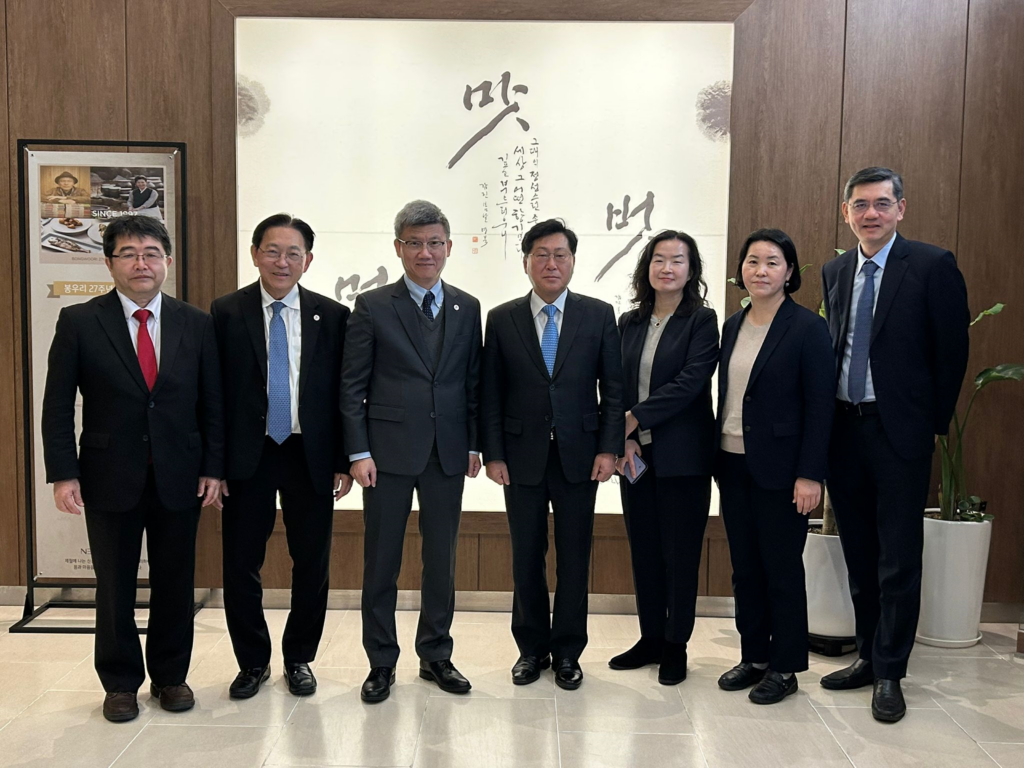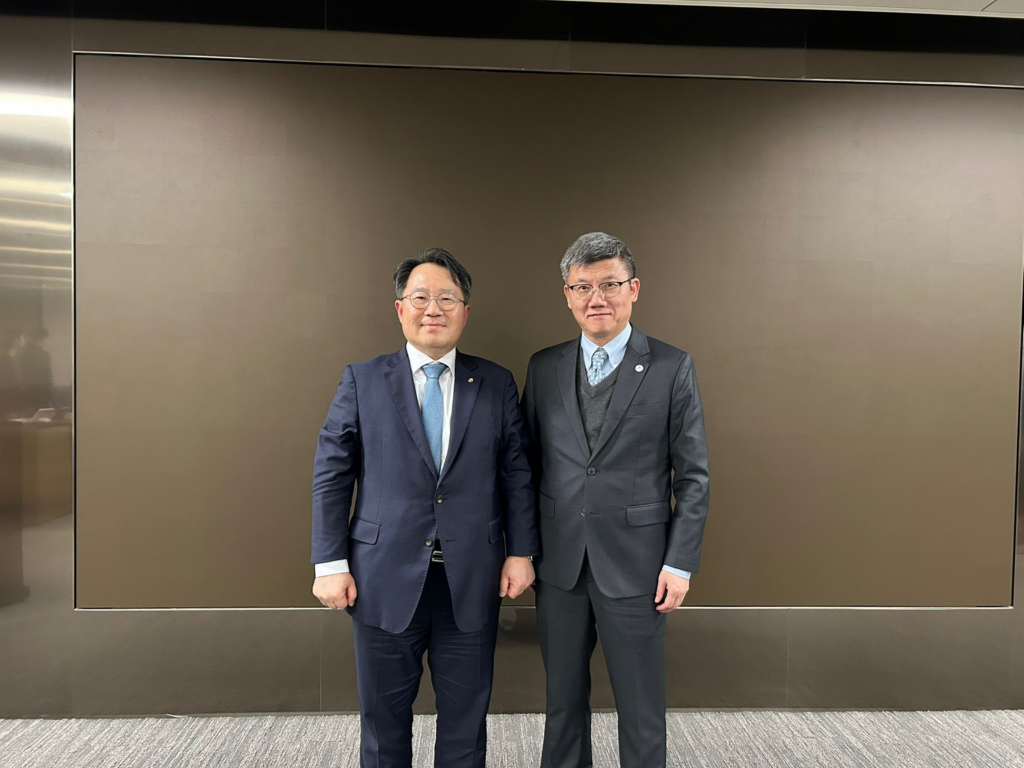
SINGAPORE, December 6, 2024 – Inflation has continued to trend down while the Korean economy has improved this year on the back of strong exports. In the near term, domestic demand is expected to pick up while export momentum moderates with the downswing in the tech cycle and weaker external demand, especially in light of expected heightening of the US protectionist trade policy. Meanwhile, interest burden and scarring effects of the pandemic continue to exert pressure on borrowers, and pockets of risk remain in savings banks, which are more exposed to project finance (PF) loans in the real estate sector. Given these considerations, macroeconomic policies should be recalibrated to support growth while maintaining financial system stability.
This is according to the preliminary assessment by the ASEAN+3 Macroeconomic Research Office (AMRO) after its Annual Consultation Visit to Korea from November 14-29, 2024. The AMRO team was led by Lead Economist Sumio Ishikawa, while AMRO Director Kouqing Li and Chief Economist Hoe Ee Khor participated in the policy meetings. The discussions focused on Korea’s recent economic developments and outlook, risks and vulnerabilities, and policy responses.
Economic developments and outlook
“The Korean economy is forecast to grow at 2.2 percent in 2024 before moderating to 1.9 percent in 2025, reflecting increased uncertainty in the global economic environment, especially regarding the US trade policy,” said Dr. Ishikawa. “Such uncertainty calls for continued vigilance and recalibration of macroeconomic policy mix to support growth while safeguarding financial stability.”
Domestic demand is expected to pick up with the easing of monetary conditions and a recovery in manufacturing investment while export momentum moderates with the downturn in the semiconductor cycle, especially in light of potential increases in US tariffs. Inflationary pressure is expected to remain contained on the back of stable domestic food prices and moderation in global energy prices. Inflation is estimated at 2.3 percent this year and 1.8 percent next year.
Credit quality, particularly of loans to SMEs and self-employed business operators, continues to deteriorate, reflecting weak recovery from the pandemic downturn, although the financial system remains sound, with capital adequacy ratios of banks and non-bank financial institutions (NBFIs) well above regulatory standards and ample liquidity buffers among banks. Comprehensive measures have been put in place to ensure orderly PF resolution.
The fiscal deficit widened on the back of a decline in tax revenue, driven by lower corporate income tax. Fiscal spending has risen less than expected, largely due to reduced mandatory transfers to local governments and education. The fiscal deficit in 2024, excluding social security funds, is estimated to be higher than the budgeted deficit of 3.6 percent in 2024 and the actual deficit of 3.6 percent in 2023. The fiscal stance was slightly expansionary, which was appropriate given the weakness in domestic demand.
Risks and vulnerabilities
Further escalation of conflicts in the Middle East could push up energy prices and shipping costs. Meanwhile, extreme weather conditions can disrupt agricultural production and drive up food prices. Inflationary pressure remains subject to adjustments to fuel tax and electricity prices.
A sudden growth slowdown in the US, Europe, or China may dampen global demand and affect Korea’s exports. The country’s export prospects may also be eroded by significant increases in import tariffs by the incoming US administration.
The debt servicing ability of SMEs, small merchants, self-employed business operators, and low-income households remains weak, reflecting the scarring effects of the pandemic. Although the banking sector’s credit quality has stabilized, non-bank deposit-taking institutions have been experiencing a rise in delinquency.
There are pockets of risk in savings banks, which have financed a significant portion of troubled PF loans in the real estate sector. Some savings banks’ financial buffers may be insufficient to absorb a surge in NPL, particularly as the increase in unsold units in regional areas has strained the finances of many developers.
Policy recommendations
As inflation is expected to further moderate in the near term, a continued dial-back in the restrictiveness of monetary policy would be appropriate to support the recovery in domestic demand. Although the policy rate reduction may lead to an increase in household borrowing, it can help alleviate households’ debt burden for existing borrowers and spur domestic demand. The lower interest rates can also help ease financial conditions for developers, construction companies, and NBFIs involved in troubled PF projects.
Stronger buffers and enhanced risk management are necessary for NBFIs. Savings banks and credit cooperatives should actively liquidate non-viable PF projects, develop rehabilitation plans for viable ones, and increase provisions and liquidity buffers. Moreover, NBFIs’ risk management and credit assessment should be strengthened.
Macroprudential measures should be further finetuned. The currently tight loan-to-value ratio for borrowers owning multiple homes or properties in speculative zones should be maintained. However, to support real housing demand, normalizing the ratio for first-time buyers should be considered.
Continued efforts are needed to ensure fiscal sustainability. Given the narrowed fiscal space post-pandemic, a medium-term fiscal consolidation program would be prudent to rebuild fiscal space and stabilize the debt-to-GDP ratio. Over the longer term, it is essential to strengthen fiscal discipline and implement revenue-enhancing and spending-restructuring measures.
On behalf of AMRO, the mission team would like to express their appreciation to the Korean authorities and other counterparts for their cooperation, insightful discussions, as well as hospitality.
About AMRO
The ASEAN+3 Macroeconomic Research Office (AMRO) is an international organization established to contribute toward securing macroeconomic and financial resilience and stability of the ASEAN+3 region, comprising 10 members of the Association of Southeast Asian Nations (ASEAN) and China; Hong Kong, China; Japan; and Korea. AMRO’s mandate is to conduct macroeconomic surveillance, support regional financial arrangements, and provide technical assistance to the members. In addition, AMRO also serves as a regional knowledge hub and provides support to ASEAN+3 financial cooperation.

AMRO Director Kouqing Li, Chief Economist Hoe Ee Khor, and the AMRO team met with Korea Ministry of Economy and Finance Deputy Minister for International Affairs, Ji-Young Choi.

AMRO Director, Kouqing Li (right), met with Bank of Korea Deputy Governor, Min Soo Kwon (left).
